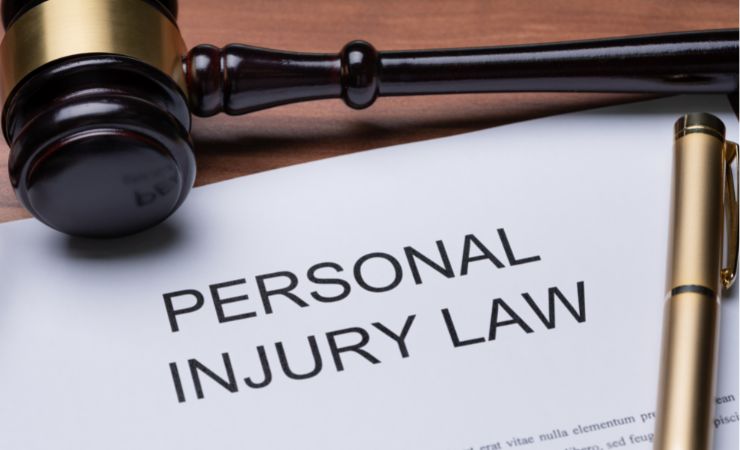Personal injury law is a crucial branch of the legal system designed to protect individuals who have suffered physical, emotional, or financial harm due to the negligence or wrongful actions of another party. It encompasses a wide range of cases, each unique in its circumstances. In this article, we will explore the various types of cases that fall under personal injury law, shedding light on the most common situations in which individuals may seek legal remedies.
Motor Vehicle Accidents:
Motor vehicle accidents are perhaps the most prevalent personal injury cases. These incidents encompass car accidents, motorcycle accidents, and accidents involving trucks, buses, or any other mode of transportation. If you’ve been injured in a collision due to someone else’s negligence, you may be entitled to compensation for your medical bills, lost wages, and pain and suffering.
Slip and Fall Accidents:
Slip and fall accidents often occur on someone else’s property, such as in a store, restaurant, or private residence. Property owners have a duty to maintain safe premises. If you slip and fall due to hazardous conditions, like a wet floor or icy sidewalk, the property owner may be liable for your injuries.
Medical Malpractice:
Medical professionals, including doctors, nurses, and healthcare facilities, are held to a high standard of care. If they fail to provide that standard of care, leading to injury or death, you may have a medical malpractice case. These cases can be complex, as they require proving that the healthcare provider’s negligence directly caused harm.
Product Liability:
When a defective product causes injury, the manufacturer or seller may be held responsible. Product liability cases can range from faulty car parts to dangerous toys or contaminated food. If you’ve suffered harm due to a product defect, you may have a valid claim.
Workplace Injuries:
Workplace injuries often fall under workers’ compensation laws, but in some cases, you can file a personal injury lawsuit. These situations typically involve a third party whose negligence caused the injury, such as a subcontractor or equipment manufacturer.
Dog Bites:
Dog owners are responsible for their pets’ behavior. If a dog bites or attacks someone, the owner can be held liable for the victim’s injuries. Laws regarding dog bites vary by jurisdiction, so it’s important to consult with a personal injury attorney who understands local regulations.
Intentional Torts:
In some instances, personal injury cases may involve intentional harm rather than negligence. This can include assault, battery, or defamation. While criminal charges may apply, victims can also seek compensation through a civil lawsuit.
Nursing Home Abuse:
Elderly individuals residing in nursing homes may experience abuse or neglect. Signs of abuse can include physical injuries, emotional trauma, or financial exploitation. In such cases, a personal injury lawsuit may be appropriate.
Boating Accidents:
Boating accidents on lakes, rivers, and oceans can lead to serious injuries. These cases can be complex, involving maritime law and various regulations. If you’ve been injured in a boating accident, consult with an attorney experienced in this area of personal injury law.
Construction Accidents:
Construction sites are inherently dangerous, and accidents can result in severe injuries or fatalities. While workers’ compensation typically covers injuries on the job, third-party liability claims may apply in certain circumstances.
1. What is the first step to take in a personal injury case?
- The first step in a personal injury case is to seek immediate medical attention if you are injured. Document the incident by taking photos, gathering witness statements, and keeping records of all medical treatment and expenses. Then, consult with a personal injury attorney to evaluate the viability of your case.
2. How long do I have to file a personal injury lawsuit?
- The time frame for filing a personal injury lawsuit varies by jurisdiction and the type of case. It’s crucial to act promptly as statutes of limitations limit the time you have to initiate legal proceedings. Consult with an attorney to understand the specific deadlines that apply to your situation.
3. Can I still pursue a personal injury case if I was partially at fault for the accident?
- Yes, in many cases, you can pursue a personal injury claim even if you share some responsibility for the accident. This is known as comparative or contributory negligence, depending on your jurisdiction. Your compensation may be reduced proportionally to your level of fault.
4. How is compensation determined in a personal injury case?
- Compensation in personal injury cases typically covers medical expenses, lost income, property damage, and pain and suffering. The specific amount varies based on the severity of your injuries, the impact on your life, and the available insurance or assets of the at-fault party.
Conclusion:
Personal injury law encompasses a wide array of cases, all rooted in the fundamental principle of seeking justice and compensation for individuals who have suffered harm due to the negligence or wrongful actions of others. Whether you’ve been injured in a motor vehicle accident, a slip and fall incident, or any other circumstance mentioned in this article, understanding your rights and the legal avenues available to you is essential. If you find yourself in such a situation, it’s crucial to consult with an experienced personal injury attorney who can guide you through the legal process and help you seek the compensation you deserve. Remember that the specific details of your case may vary, so seeking professional legal advice is the best way to protect your rights and interests.







